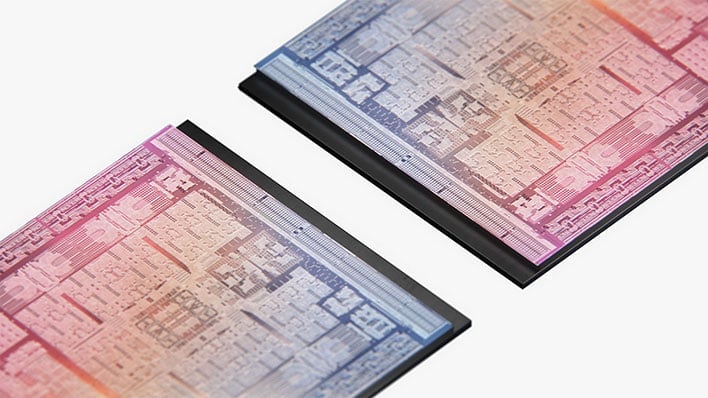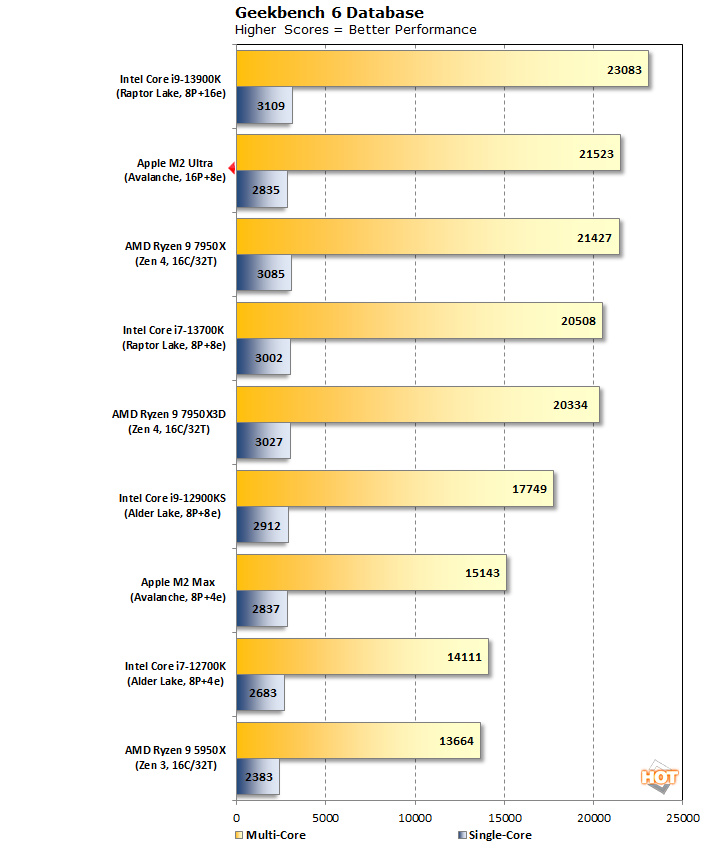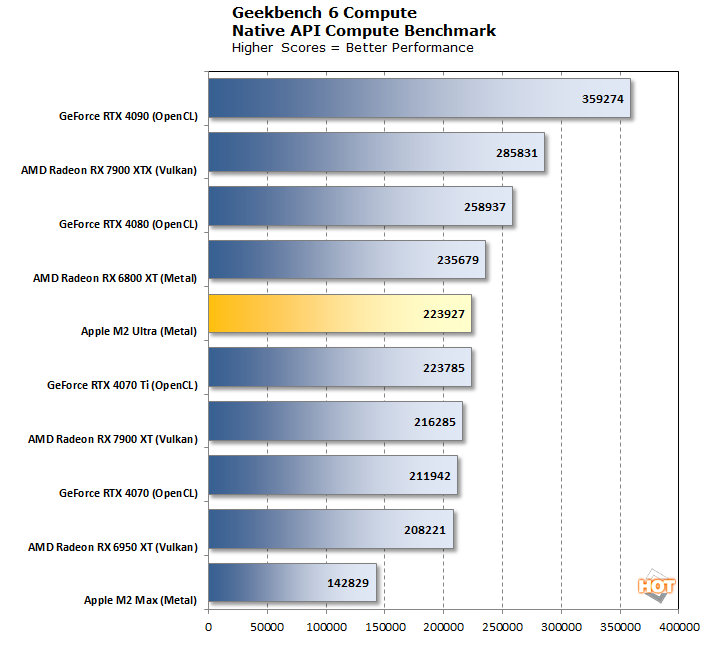Apple M2 Ultra Benchmarks Show Cupertino Didn’t Beat Intel, AMD, Or NVIDIA

The fact remains that raw performance is the most objective thing we can talk about, though. It also happens to be the case that performance numbers make for great headlines. Apple had some big claims about its new M2 Ultra SoC, as usual, but independent testing hasn't exactly borne out those performance promises.

The M2 Ultra comports itself pretty well in both single- and multi-threaded tests. It hangs with the best from AMD and Intel, and that's nothing to sneeze at. However, it certainly doesn't clear the field the way Apple would have you think it does. In particular, the single-threaded score falls behind Zen 4 and Raptor Lake processors, and even the last-gen Core i9-12900KS.
Meanwhile, the M2 Ultra's multi-core score—much more heavily-influenced by memory bandwidth on Geekbench 6 compared to previous versions of the benchmark—just barely creaks ahead of AMD's finest while falling well short of an Intel machine with fast RAM.

Benchmark data sourced from PrimateLabs Geekbench 6 Browser.
On the GPU compute side of things, the situation is worse, although it must be stated that many of these discrete GPUs will draw more power than the entire M2 Ultra SoC itself. Obviously the crown goes to the absolutely monstrous GeForce RTX 4090, but AMD's top-end card puts up a reasonable showing for itself too. Both completely dominate the M2 Ultra, but once again, there's a huge power disparity here.
The most interesting result in this chart is surely the Radeon RX 6800 XT running under macOS and using the Metal API. That result comes from what appears to be a user's Hackintosh system, but macOS and Geekbench think it's a Mac Pro. The performance difference there—compare the Radeon RX 6950 XT down near the bottom of the chart using Vulkan with the RX 6800 XT using Metal—really highlights how much the Geekbench compute benchmark prefers the Metal API.
Indeed, results using OpenCL on the M2 Ultra are significantly less impressive. We think the native API comparison is more fair because anyone using an M2 Ultra is probably going to be running Apple software that is compiled specifically for its own software stack and hardware. Still, it's an important data point—if you want to run some cross-platform program that doesn't use Metal, the performance will be much worse than expected.
Geekbench 6 is fairly reliable across platforms, and we generally trust it, but it is still only one largely-synthetic benchmark suite. Given that, don't take these results as gospel; they may not apply at all to any given workload or test. Instead, if you're keen to know how an M2 Ultra runs your application of choice, look out for app-specific benchmarks from third parties, as always.

